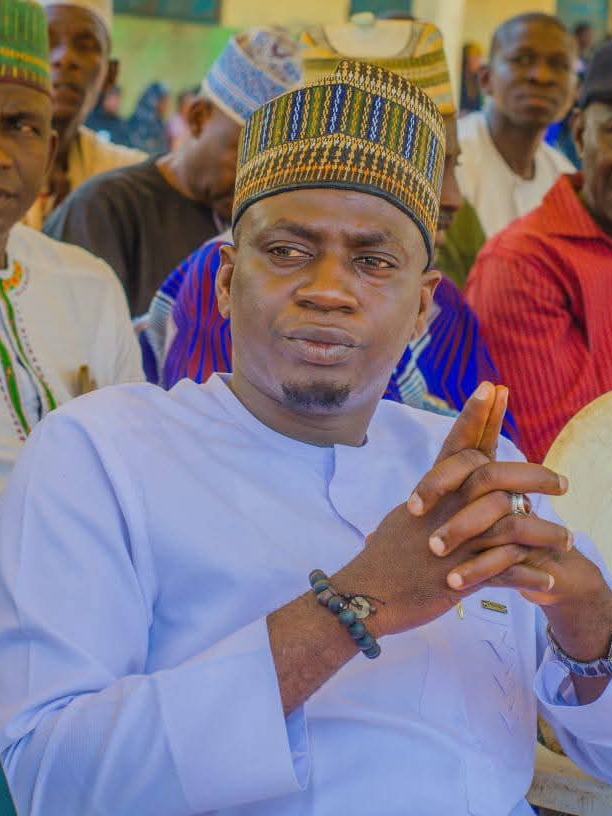
By THEANALYSTMEDIA.
Godfatherism has become a deeply entrenched feature of Nigerian politics. It refers to a political system where influential individuals, known as godfathers, use their wealth, power, and connections to determine who holds political offices. These godfathers often sponsor candidates during elections with the expectation of loyalty and repayment through political favors or financial rewards once the candidates assume office. While this practice might seem beneficial to aspiring politicians seeking support, it has, over time, posed serious threats to democratic governance, good leadership, and national development.
Undermines Democracy and Meritocracy
One of the major disadvantages of godfatherism is that it undermines the democratic process. Instead of candidates emerging based on merit, competence, and the will of the people, godfathers handpick their protégés. This practice erodes public confidence in elections and limits the people’s freedom to choose their leaders. As a result, politics becomes a game of loyalty to individuals rather than service to the nation.
Promotes Corruption and Mismanagement
Godfatherism breeds corruption because godfathers expect financial returns for their political investment. Once elected, the “godson” is often compelled to divert public funds to repay or enrich the godfather. This practice leads to the misappropriation of state resources and hinders development projects. The focus of governance shifts from public service to satisfying private interests, thereby deepening corruption at all levels of government.
Encourages Political Instability and Conflict
When godsons attempt to assert independence from their godfathers, political crises often erupt. Many states in Nigeria have witnessed bitter rivalries, impeachment battles, and even violence as a result of clashes between political godfathers and their protégés. Such conflicts destabilize governance, disrupt development programs, and create divisions within political parties and society.
Discourages Competent Leadership
Godfatherism discourages capable and independent-minded individuals from participating in politics. Many potential leaders are sidelined because they lack powerful backers or refuse to be subservient to godfathers. This has led to a recycling of the same class of politicians who prioritize loyalty over competence, thereby stunting the growth of visionary leadership in Nigeria.
Weakens Accountability and Transparency
In a system dominated by godfatherism, elected officials often feel more accountable to their godfathers than to the electorate. This weakens transparency and accountability in governance. Instead of being answerable to the people who voted them into office, public officers become puppets who take directives from their political sponsors, resulting in poor governance and lack of responsiveness to citizens’ needs.
Hampers Development and Good Governance
Because godfathers exert undue influence over political appointees and government contracts, resources are often misallocated or wasted on projects that serve private interests. Developmental policies may be abandoned or poorly implemented if they do not align with the godfather’s agenda. This stifles innovation, weakens institutions, and slows down socio-economic progress across the nation.
Some real-life Nigerian examples of states where godfatherism has caused major political conflicts.
- Anambra State – Chris Uba vs. Chris Ngige (2003–2006)
One of the most notorious cases of godfatherism in Nigeria occurred in Anambra State.
In 2003, businessman Chris Uba, a powerful political figure within the People’s Democratic Party (PDP), sponsored Dr. Chris Ngige to become governor. After winning the election, Ngige reportedly refused to obey Uba’s demands for control of state funds and appointments.
This led to a political crisis, including the infamous attempted abduction of Governor Ngige in July 2003. The state became ungovernable for months, and several public buildings were later set ablaze by political thugs.
This case remains one of Nigeria’s clearest examples of how godfatherism can lead to chaos and instability.
- Oyo State – Lamidi Adedibu vs. Rashidi Ladoja (2003–2006)
In Oyo State, the late Chief Lamidi Adedibu, known as the “strongman of Ibadan politics,” played the role of political godfather to Governor Rashidi Ladoja, who assumed office in 2003 under the PDP.
When Ladoja refused to share state resources and follow Adedibu’s directives, a bitter feud erupted.
Adedibu used his influence to mobilize lawmakers against Ladoja, leading to Ladoja’s impeachment in 2006. Although the Court of Appeal later reinstated him, governance in the state was severely disrupted.
This incident highlighted how godfatherism can destabilize a government and divert attention from development.
- Kano State – Rabiu Kwankwaso vs. Abdullahi Ganduje (2015–2023)
In Kano State, the political relationship between former governor Rabiu Kwankwaso and his protégé Abdullahi Ganduje deteriorated after Ganduje took office in 2015.
Kwankwaso, once Ganduje’s political mentor and godfather, expected to maintain influence over state affairs. However, Ganduje sought to establish independence, leading to a deep political rift between the two men.
The conflict split the All Progressives Congress (APC) in Kano and sparked repeated political confrontations, protests, and factional crises that affected governance in the state.
- Kwara State – The Saraki Dynasty (2003–2019)
For many years, Kwara State politics was dominated by the Saraki family, beginning with the late Dr. Olusola Saraki, a major political godfather.
His influence determined who held major political positions in the state. However, in 2019, his son Bukola Saraki, who inherited his political network, faced massive resistance from the “Ó Tó Gẹ́ Movement” (meaning “Enough is Enough”).
This movement successfully ended the long-standing Saraki political dominance, showing the tension and public backlash that can arise when godfatherism overstays its welcome.
- Edo State – Adams Oshiomhole vs. Godwin Obaseki (2016–2020)
In Edo State, Adams Oshiomhole, the former APC National Chairman and ex-governor, played a godfather role in the rise of Godwin Obaseki in 2016.
However, their relationship soured when Obaseki resisted Oshiomhole’s attempts to influence his administration and re-election plans.
The dispute led to a bitter political battle, Obaseki’s defection from the APC to the PDP, and a highly polarized 2020 governorship election.
This modern example shows how godfatherism continues to shape — and sometimes destroy — political alliances in Nigeria.
- Lagos State – Bola Tinubu and Successive Governors
In Lagos State, former governor Asiwaju Bola Ahmed Tinubu has long been seen as the political godfather of the state.
While his influence has brought some political stability, it has also sparked debates about overcentralized control
Tensions reportedly arose between Tinubu and some of his successors — especially Governor Akinwunmi Ambode, who failed to secure a second term in 2019 after losing favor with the political establishment.
This demonstrates how godfatherism can quietly limit internal party democracy and the independence of elected leaders.
Conclusion
Godfatherism is one of the major obstacles to the growth of true democracy and sustainable development in Nigeria. Its adverse effects—ranging from corruption and poor governance to political instability—have continued to weaken the nation’s political structure. To curb these challenges, Nigeria must strengthen its democratic institutions, ensure transparent electoral processes, and promote political education that empowers citizens to make independent choices. Only when the influence of godfathers is minimized can Nigeria experience genuine democracy and progressive leadership.











